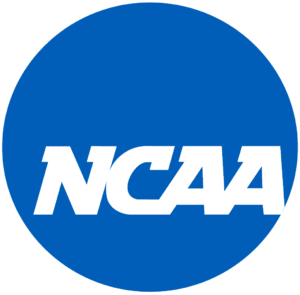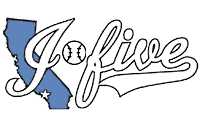I-5 NCAA Information
 College recruiting can be a very daunting endeavor. There are a lot of rules and regulations for the players as well as coaches. Below we try to help you to understand some of the terminology as well as the dates you should be aware of in the process.
College recruiting can be a very daunting endeavor. There are a lot of rules and regulations for the players as well as coaches. Below we try to help you to understand some of the terminology as well as the dates you should be aware of in the process.
Most schools try hard to comply with recruiting bylaws that support the NCAA’s underlying principles of fairness and integrity. The rules define who may be involved in the recruiting process, when recruiting may occur and the conditions under which recruiting may be conducted. Recruiting rules seek, as much as possible, to control intrusions into the lives of prospective student-athletes.
The NCAA defines recruiting as “any solicitation of prospective student-athletes or their parents by an institutional staff member or by a representative of the institution’s athletics interests for the purpose of securing a prospective student-athlete’s enrollment and ultimate participation in the institution’s intercollegiate athletics program.”
Most NCAA recruiting violations are inadvertent. Problems can range from occasional improper phone calls and text messages to the more serious matters such as the funneling of cash and other illegal benefits to prospective student-athletes and their families.
Evolving technology presents unique challenges in recruiting. The NCAA position state’s new technology can be used so long as it complies with the spirit and, where updated, the letter of already existing guidelines. For example, schools cannot text prospective student-athletes at any time, but they can e-mail during permissible contact periods. Schools can do so even from social media platforms such as Facebook. Texting was eliminated because of the potential cost to prospective student-athletes.
As part of its effort to ensure fairness in the recruiting process, the NCAA also seeks to control recruiting excesses. Recent examples include prohibiting college football coaches from arriving at high school football games in helicopters to impress potential recruits and restricting the nature of entertainment during official visits.
Recruiting philosophies differ among divisions. For example, because of its community-oriented philosophy, Division II recruiting rules allow recruits to participate in certain community-engagement activities hosted on campus. Those activities might be regarded as a special benefit in Division I.
Issues with recruiting are more common in men’s sports, although recruiting issues in women’s sports are on the rise. Of the issues in male sports, most occur in the sports of basketball and football.
NCAA Recruiting Terms
What is a CONTACT?
A contact occurs any time a college coach says more than hello during a face-to-face contact with a college-bound student-athlete or his or her parents off the college’s campus.
What is an EVALUATION PERIOD?
During an evaluation period a college coach may watch college-bound student-athletes compete, visit their high schools, and write or telephone student-athletes or their parents. However, a college coach may not have face-to-face contact with college-bound student-athletes or their parents off the college’s campus during an evaluation period.
What is a QUIET PERIOD?
During a quiet period a college coach may not have face-to-face contact with college-bound student-athletes or their parents, and may not watch student-athletes compete or visit their high schools. Coaches may write or telephone college-bound student-athletes or their parents during this time.
What is a DEAD PERIOD?
During a dead period a college coach may not have face-to-face contact with college-bound student-athletes or their parents, and may not watch student-athletes compete or visit their high schools. Coaches may write and telephone student-athletes or their parents during a dead period.
What is the difference between an OFFICIAL VISIT and an UNOFFICIAL VISIT?
Any visit to a college campus by a college-bound student-athlete or his or her parents paid for by the college is an official visit. Visits paid for by college-bound student-athletes or their parents are unofficial visits.
During an official visit the college can pay for transportation to and from the college for the prospect, lodging and three meals per day for both the prospect and the parent or guardian, as well as reasonable entertainment expenses including three tickets to a home sports event.
The only expenses a college-bound student-athlete may receive from a college during an unofficial visit are three tickets to a home sports event.
What is a NATIONAL LETTER OF INTENT?
A National Letter of Intent is signed by a college-bound student-athlete when the student-athlete agrees to attend a Division I or II college or university for one academic year. Participating institutions agree to provide financial aid for one academic year to the student-athlete as long as the student-athlete is admitted to the school and is eligible for financial aid under NCAA rules. Other forms of financial aid do not guarantee the student-athlete financial aid.
The National Letter of Intent is voluntary and not required for a student-athlete to receive financial aid or participate in sports.
Signing a National Letter of Intent ends the recruiting process since participating schools are prohibited from recruiting student-athletes who have already signed letters with other participating schools.
A student-athlete who has signed a National Letter of Intent may request a release from his or her contract with the school. If a student-athlete signs a National Letter of Intent with one school but attends a different school, he or she will lose one full year of eligibility and must complete a full academic year at their new school before being eligible to compete.
What are RECRUITING CALENDARS?
Recruiting calendars help promote the well-being prospective student-athletes and coaches and ensure competitive equity by defining certain time periods in which recruiting may or may not occur in a particular sport.
Coaches and their associates are restricted to certain times during the year when they can contact players, and in what way this contact is made. Calendar dates include contact periods, dead periods, evaluation periods and quiet periods.
Other Athlete Recruiting Terms:
What are NCAA Divisions I, II, and III?
The NCAA is the governing body of many intercollegiate sports. Each college regulated by the NCAA has established rules on eligibility, recruiting and financial aid, and falls into one of the three membership divisions (Divisions I, II and III). Divisions are based on college size and the scope of their athletic programs and scholarships
What is a RECRUIT?
A student-athlete is considered a recruit when he/she engages in off-campus, in-person contact with a coach; receives a telephone call from a coach more than once; is issued a National Letter of Intent from a prospective school; or makes an official visit to a prospective school.
What is a REDSHIRT?
Redshirt: Also known as a “Fifth Year Senior,” redshirt refers to a student-athlete who extends four seasons of play over five years. A redshirt player typically sits out of games for a season, while still attending practices and classes.
What is a WALK-ON?
This term refers to a student-athlete who plays and trains with a collegiate team without an athletic scholarship.
NCAA Elgibility Basics: Student-athletes must register with the NCAA Eligibility Center to be eligible to play NCAA Division I or II sports in college. Athletes playing in Division III do not have to register.
What is the NCAA Eligibility Center?
The NCAA Eligibility Center certifies whether prospective college athletes are eligible to play sports at NCAA Division I or II institutions. It does this by reviewing the student-athlete’s academic record, SAT or ACT scores, and amateur status to ensure conformity with NCAA rules.
What are NCAA Divisions I, II, and III?
The NCAA is the governing body of many intercollegiate sports. Each college regulated by the NCAA has established rules on eligibility, recruiting and financial aid, and falls into one of the three membership divisions (Divisions I, II and III). Divisions are based on college size and the scope of their athletic programs and scholarships.
When should students register?
The NCAA recommends that student-athletes register at the beginning of their junior year in high school, but many students register after their junior year. There is no registration deadline, but students must be cleared by the Eligibility Center before they receive athletic scholarships or compete at a Division I or II institution.
How do students register?
Students must register online at the NCAA Eligibility Center. They will have to enter personal information, answer questions about their course work and sports participation outside of high school and pay a registration fee.
Can students have the registration fee waived?
Students who have received a waiver for the SAT or ACT are eligible for a waiver of the registration fee. The student’s counselor must submit confirmation of the student’s test fee waiver. Go to the NCAA Eligibility Center High School Portal for more information.
What records does the Eligibility Center require?
Students should arrange to have you send their high school transcript as soon as they have completed at least six semesters of high school. The transcript must be mailed directly from their high school. They must also arrange to have their SAT or ACT test scores reported directly by the testing company to the Eligibility Center. Students can arrange this when they register for the tests.
You are responsible for sending in students’ final transcripts and proof of graduation at the end of their senior year.
How often can students update their athletics participation information?
Students can update the information on the athletics participation section online as often as they want (and should update it regularly), up until the time when they request a final certification of their status. At that point — usually three to four months before enrolling in college — students must finalize their information.
What are the NCAA academic eligibility requirements?
To play sports at an NCAA Division I or II institution, the student must:
-
Complete a certain number of high school core courses (defined below).
-
Earn a certain minimum grade point average in these core courses.
-
Earn a certain minimum score on the SAT or ACT.
-
Graduate from high school.
What are core courses?
This is the name that the NCAA gives to high school courses that meet certain academic criteria specified by the association. Students must complete a certain number of core courses for NCAA Division I and II eligibility.
How are High School courses classified as core courses?
All participating high schools submit lists of the courses that they offer that meet NCAA core-course criteria. If approved, the courses are added to a database that the NCAA Eligibility Center maintains. You can check this database, or view a list of approved core courses on the NCAA Eligibility Center High School Portal to see whether your student-athletes are enrolled in courses that will count toward NCAA eligibility.
It is often the counselor who provides the NCAA with the list of your school’s core courses and updates it annually. The NCAA may ask for more information before approving a core course.
What are the NCAA amateurism eligibility requirements?
To play sports at an NCAA Division I or II institution, the student athlete must follow NCAA amateurism rules about receiving a salary or prize money for athletic participation, playing with a professional team and other areas. For more information, see the Guide for the College-Bound Student-Athlete.
Keep in mind
The best way for students to prepare for a future in college athletics is to complete the approved core courses and earn appropriate grades in them. Indeed, more students fail to qualify to play NCAA sports because of lack of appropriate course work than for low test scores.
Make sure your athletes are enrolled in the courses on your high school’s core-course list, and also know the eligibility requirements of the NCAA Eligibility Center. Then make sure your athletes are taking the necessary courses, earning the necessary grades and doing anything else they must to stay on track for NCAA eligibility.

